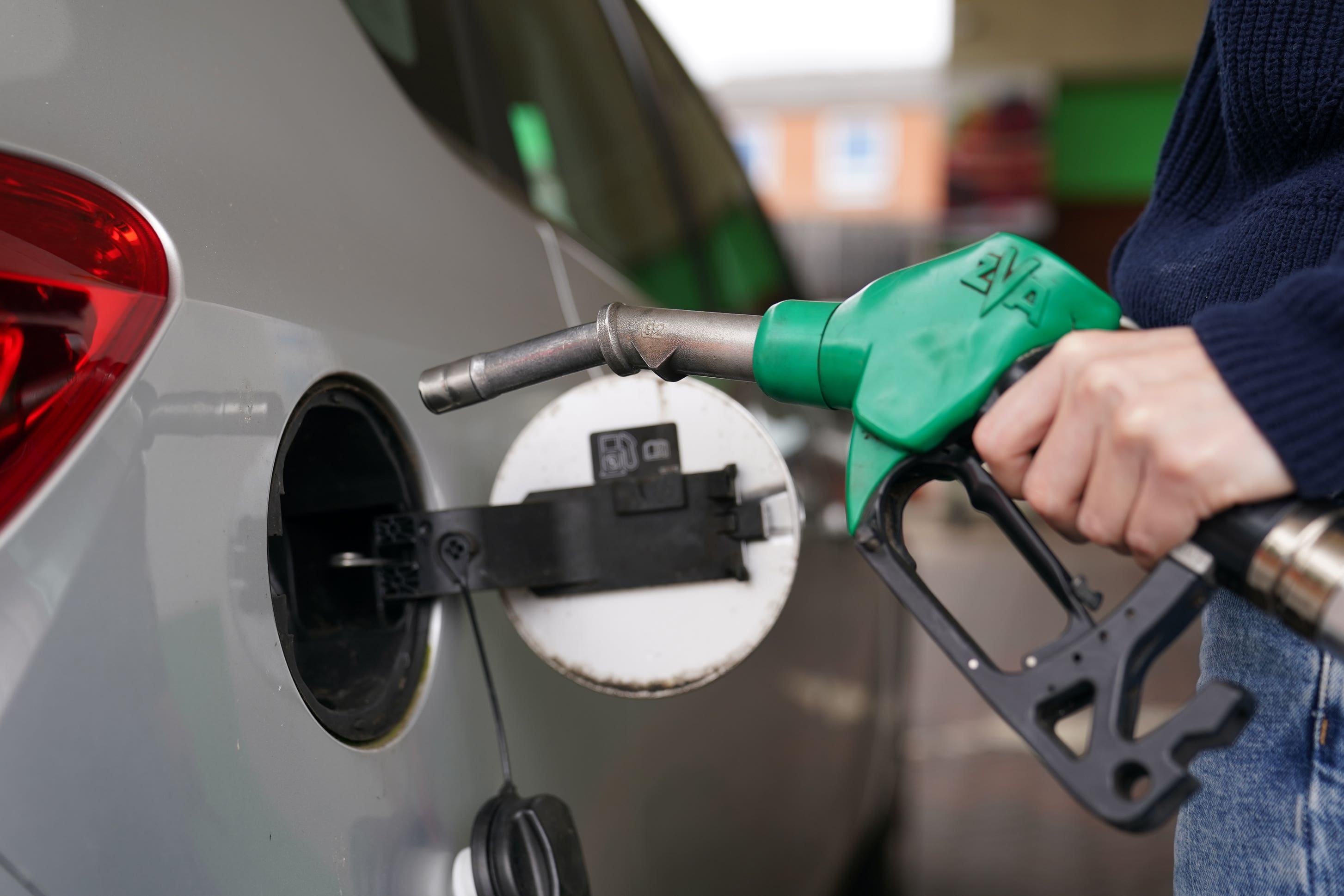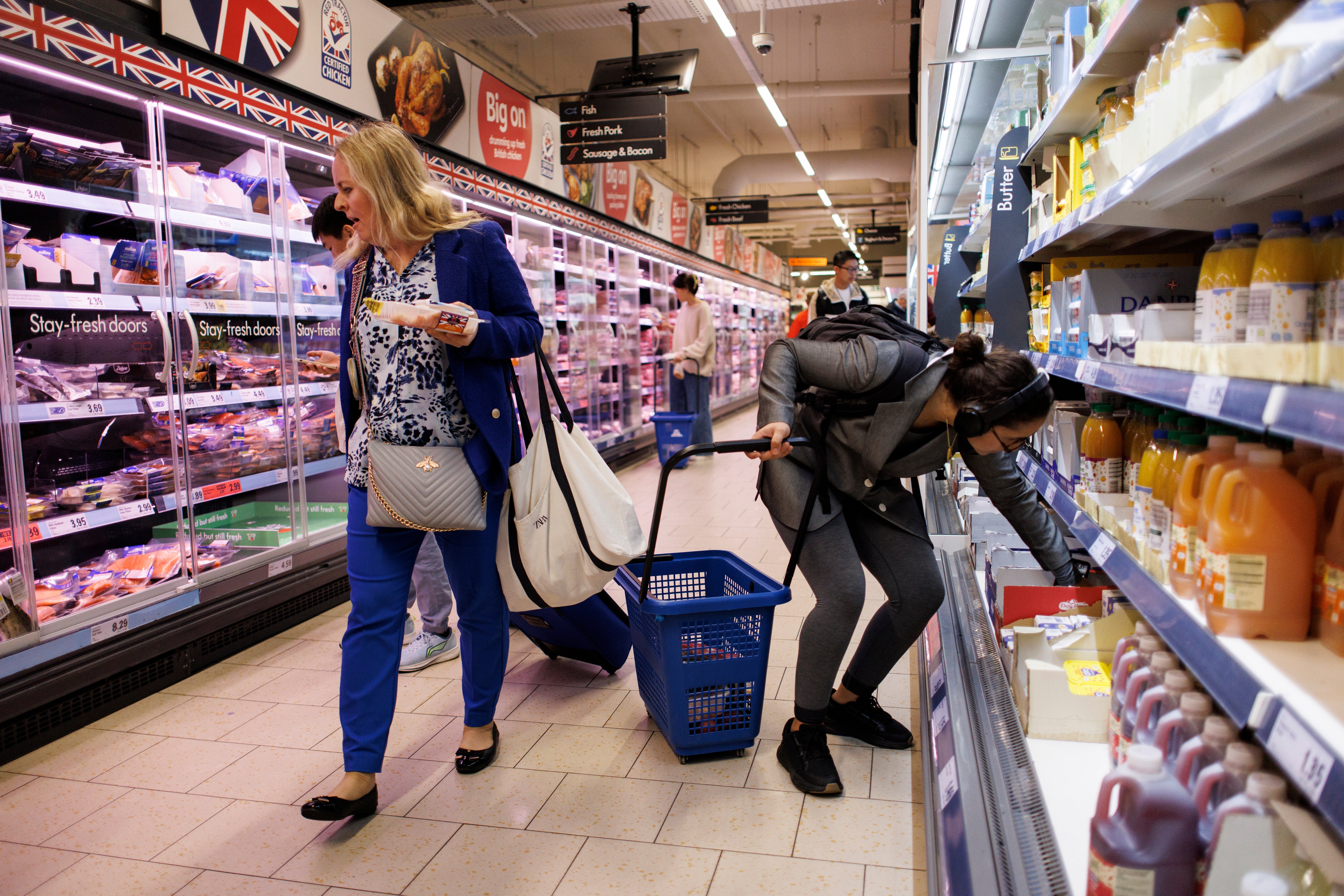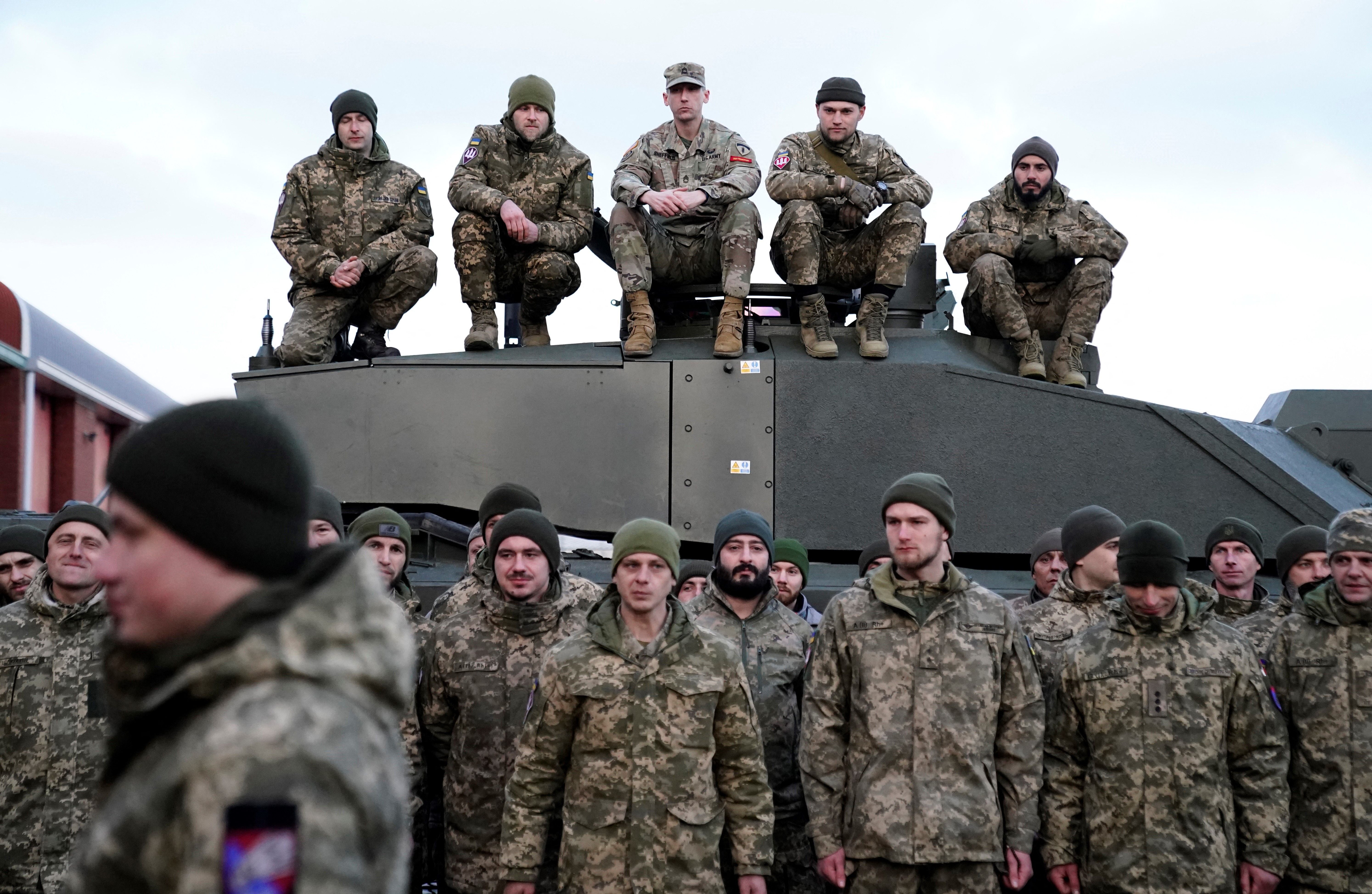UK inflation rate slows to lowest level for more than two years
Jeremy Hunt claimed the UK was ‘back on the path to healthy, sustainable growth’

Your support helps us to tell the story
From reproductive rights to climate change to Big Tech, The Independent is on the ground when the story is developing. Whether it's investigating the financials of Elon Musk's pro-Trump PAC or producing our latest documentary, 'The A Word', which shines a light on the American women fighting for reproductive rights, we know how important it is to parse out the facts from the messaging.
At such a critical moment in US history, we need reporters on the ground. Your donation allows us to keep sending journalists to speak to both sides of the story.
The Independent is trusted by Americans across the entire political spectrum. And unlike many other quality news outlets, we choose not to lock Americans out of our reporting and analysis with paywalls. We believe quality journalism should be available to everyone, paid for by those who can afford it.
Your support makes all the difference.UK inflation eased back to its lowest level for more than two years last month as falling petrol prices helped drive a bigger-than-expected fall, official figures show.
The Office for National Statistics (ONS) said the rate of Consumer Prices Index inflation fell to 3.9% in November, down from 4.6% in October, and the lowest level since September 2021. Most economists had been expecting inflation to fall to 4.3% last month.
The government had set a target of halving inflation in 2023, although the current rate is still well above the Bank of England’s 2% goal.
Mr Hunt said: “With inflation more than halved we are starting to remove inflationary pressures from the economy.
“Alongside the business tax cuts announced in the autumn statement this means we are back on the path to healthy, sustainable growth.
“But many families are still struggling with high prices so we will continue to prioritise measures that help with cost-of-living pressures.”

Shadow chancellor Rachel Reeves said: “The fall in inflation will come as a relief to families. However, after 13 years of economic failure under the Conservatives, working people are still worse off.
“Prices are still going up in the shops, household bills are rising, and more than a million people face higher mortgage payments next year after the Conservatives crashed the economy.”
Work and pensions secretary Mel Stride said the inflation fall could allow the Bank of England to ease interest rates – helping homeowners struggling with mortgage costs.
The cabinet minister told LBC Radio: “A greater decrease in inflation of course means that monetary policy might be loosened a little bit more quickly than it would otherwise be – in other words, interest rates coming down.
“Those are matters for the independent Bank of England, they are not for me to predict, but if inflation comes down faster than expected, then that does take some pressure off the Bank of England in terms of keeping interest rates higher, which of course in time and in turn feeds into mortgage rates.”
The further steep fall in inflation comes after the dramatic decline seen in October, when inflation dropped from 6.7% in September, enabling Prime Minister Rishi Sunak to declare an early victory in his goal to halve inflation by the year end.

But the Bank of England has been quick to warn that the job of bringing inflation back to its 2% target is far from done and has poured cold water on mounting hopes of an imminent interest rate cut.
The ONS confirmed that the Bank, which held interest rates at 5.25% last week, had not seen the most recent inflation figures before its latest decision.
Grant Fitzner, chief economist at the ONS, said: “Inflation eased again to its lowest annual rate for over two years, but prices remain substantially above what they were before the invasion of Ukraine.
“The biggest driver for this month’s fall was a decrease in fuel prices after an increase at the same time last year.
“Food prices also pulled down inflation, as they rose much more slowly than this time last year.
“There was also a price drop for a range of household goods and the cost of second-hand cars.”

The ONS figures showed that falling prices at the fuel pumps helped bring down the rate of inflation, with the average cost of petrol dropping by 4.1p a litre between October and December, to stand at 151p last month.
Overall motor fuel prices fell by 10.6% in the year to November 2023, compared with a drop of 7.6% in the year to October.
CPI was also pulled lower by a slowdown in the pace of annual food price inflation, which dropped to 9.2% last month, down from 10.1% in October, and the lowest rate since May last year.
Food prices have now fallen for eight months in a row, from an eye-watering more than 45-year high of 19.2% in March, which is providing some much-needed respite for cash-strapped households.
Tobias Gruber, founder of My Community Finance, said now was the time for people to “diversify their savings portfolio”.
He said: “If your savings have stagnated in the same account for years, there’s a high likelihood that you’re missing out on potentially higher returns.
“The new year presents an ideal time to reassess your finances and spend time exploring what your money could be earning elsewhere.”
Join our commenting forum
Join thought-provoking conversations, follow other Independent readers and see their replies
0Comments